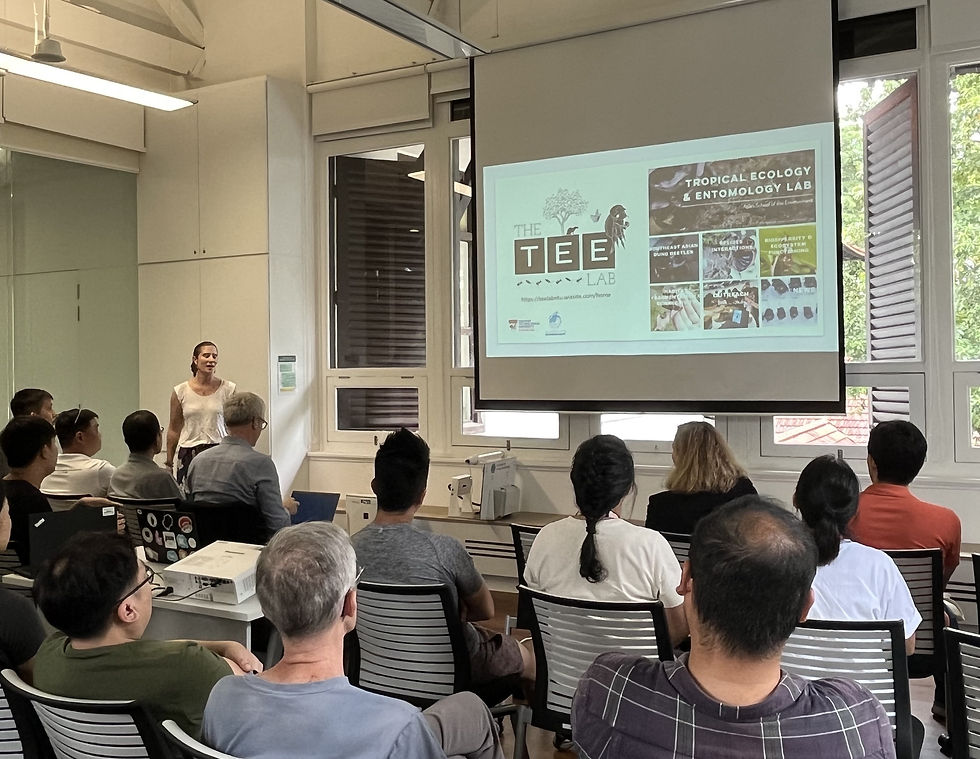Unveiling AMBER: A Glimpse into Biodiversity Monitoring in Singapore using AI
- Ng Wan Lin
- Dec 4, 2023
- 2 min read
Updated: Dec 5, 2023
A UKCEH-NParks-NTU Sharing Session
While recent studies suggest a sharp decline in insect populations around the world, limited monitoring data, especially in highly biodiverse areas threatened by intensive land use or climate change, hinders a comprehensive understanding. With the need for additional research, novel technologies offer promising, standardized, and less invasive monitoring solutions.

In a unique collaboration between the Alan Turing Institute, UK Centre for Ecology & Hydrology (UKCEH), and abrdn Charitable Foundation, the AMBER (AI-assisted Monitoring of Biodiversity using Edge-processing and Remote Sensors) project made its debut in Singapore on November 24, 2023.
To kick off this initiative, the project partnered with the Tropical Ecology & Entomology Lab (TEE Lab) at the Asian School of Environment (ASE) in Nanyang Technological University (NTU) and received local support from National Parks Board (NParks). An insightful sharing session was held at the Singapore Botanic Gardens Seed Bank, bringing together enthusiasts, experts, and stakeholders eager to delve into the intricacies of the AMBER project.

The AMBER project is testing the use of automated camera and audio systems, combined with AI to deliver more standardised monitoring of insects, bats and birds. Over the next two years, the project aims to deploy a network of 40 biodiversity monitoring units (AMI-systems), together with AI data processing in biodiverse locations across the world – including 10 systems in Singapore.

Dr. David Roy from the UKCEH provided a detailed introduction to the AMBER project and showcased the cutting-edge AMI (AI Monitoring Interface) technology at the heart of this collaborative endeavor.

NParks' presentation offered a glimpse into an overview of the ongoing biodiversity monitoring initiatives in Singapore.

Dr. Eleanor Slade, from the TEE Lab at NTU's ASE, also shared valuable insights into the lab's work and ongoing efforts of monitoring biodiversity in tropical regions.
TEE Lab and AMBER Project Team extend their gratitude to the participants for their contributions and sharing to this event.
Stay tuned for further updates on the AMBER project!
You can read more about the project here: https://www.turing.ac.uk/research/research-projects/amber-ai-assisted-monitoiring-biodiversity-using-edge-processing-and




Comments